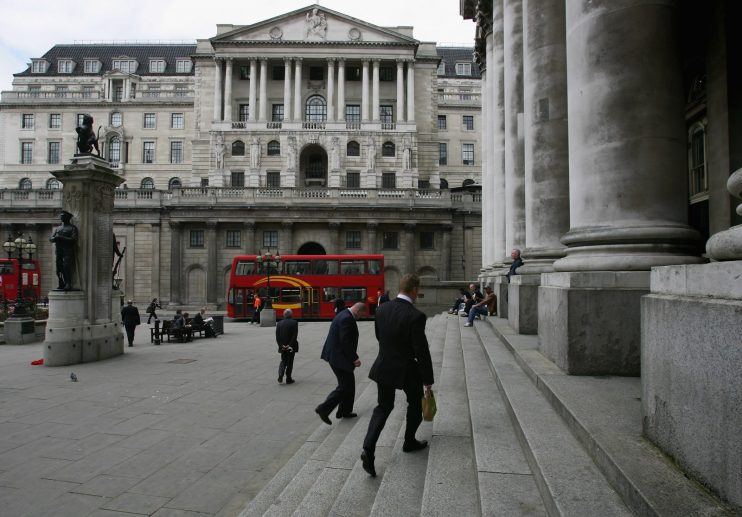Markets today: Fed tilts towards a taper, Bank of England up next

European markets underwent another strong session yesterday, as concerns about Evergrande diminished further, while markets in the US shook off their early week malaise by finishing close to the highs of the day in the wake of last night’s Fed meeting, which despite what looked like a fairly neutral statement, saw the central bank outline a timeline for a tapering of asset purchases.
“Powell’s press conference came across as much more hawkish as he outlined the beginning of the process of a tapering of asset purchases this year,” commented Michael Hewson, chief market analyst at CMC Markets UK, this morning.
In its statement the Fed stated that “if progress continues broadly as expected, the Committee judges a moderation in the pace of asset purchases may soon be warranted”.
“This tees us up for the September payrolls report, to be released on October 8, and according to Powell, an even half decent report here could be the final piece of the jigsaw for tapering to start in November, with the potential to be all done by the middle of 2022,” Hewson explained.
“This rather begs the question, why wait until then, if you’re only looking for a semi decent report, unless you are buying time to see how the situation in Washington regarding the debt ceiling plays out, as well as the Evergrande crisis in China,” he continued.
The number of FOMC members who saw the potential for a rate rise in 2022 increased from 7 in June to 9, meaning the committee are evenly split, however that is likely to change if the data evolves as expected, which means that a rate hike for 2022 is likely to become a majority view by the end of this year, which is a big shift in thinking from earlier this year.
The hawkish nature of the press conference in contrast to the statement saw the US dollar move higher towards the highs for the year. US short term yields also pushed higher, while the 10-year yield barely moved.
“As we look ahead to today’s European session, Asia markets have seen a continued recovery with Chinese real estate companies also rebounding, along with Evergrande, although we still have no news about the US dollar interest payment,” Hewson noted.
“The optimistic mood in Asia looks set to ripple out into today’s European open with another positive start.”
Bank of England today
With the Federal Reserve out of the way, attention now turns to the Bank of England and whether we will see a change of stance when it comes to the bond buying program.
Recent comments from Bank of England governor Andrew Bailey, shone an unexpected light on the deliberations of the Monetary Policy Committee when they last met in August. While everything else was as you were, as far as interest rates were concerned, external MPC member Michael Saunders went against the status quo when it came to the bond buying program, voting against the consensus.
“It now turns out that half of the MPC members at that time were much more confident about the UK economy than they were at the previous meeting,” Hewson said.
In comments to politicians at the beginning of this month, the governor admitted that at least 4 MPC members felt that the recent improvement in basic economic conditions could well be used as justification for a rate rise, although one wasn’t imminent yet.
Hewson pointed out “this was quite an unexpected moment of candour, as well as insight into the deliberations on the Monetary Policy Committee at the last meeting, and while it doesn’t suggest that policymakers are itching to pull the trigger on a rate move, it can’t be too long before the central bank reins in its bond buying program, with a signal coming as soon as today, although recent events around surging gas prices and energy suppliers going bust might stay their hand.”
“We’ll also get an insight into the stance of the two new members of the MPC, namely new chief economist Huw Pill and external member Catherine Mann, who has replaced Gertjan Vlieghe. Pill’s position especially will be noteworthy given his recent critiques of unlimited central stimulus, which suggests he might lean towards the hawkish side.”
If this turns out to be the case this would be most welcome given the tendency of most central bankers to get caught up in collective groupthink, Hewson stressed.
“No changes are expected, on the rate front, however it wouldn’t be a surprise to see a reduction in the pace of bond purchases, a move that would be most welcome. Even if that doesn’t happen, we could see more dissent on the bond purchase front, with other members joining Michael Saunders, in spite of recent events,” he concluded.